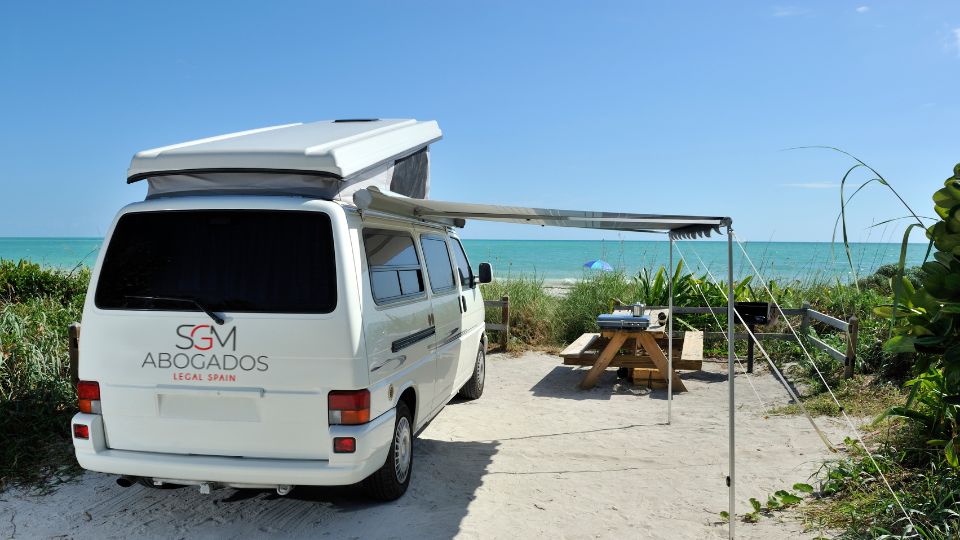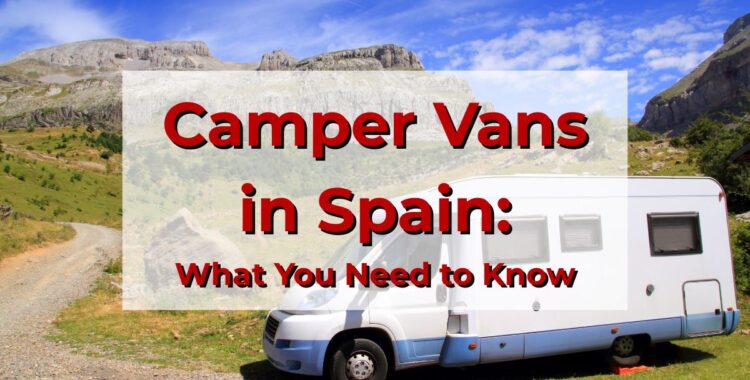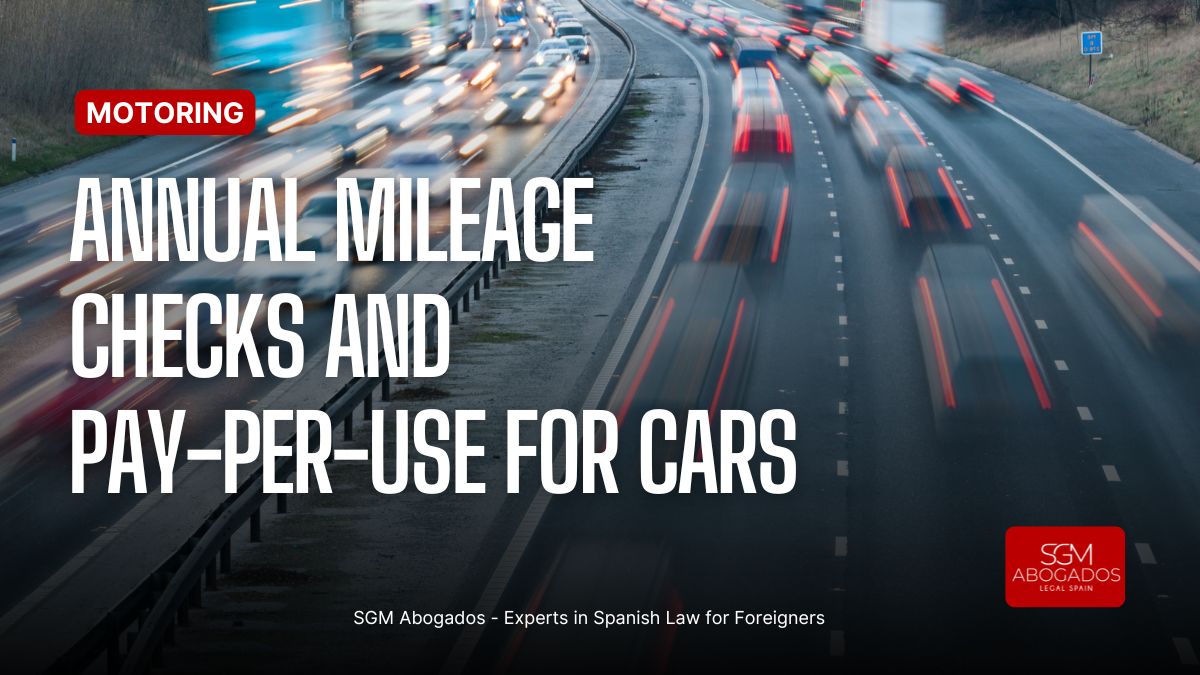Camper Vans in Spain: What You Need to Know
Camper Vans in Spain: What You Need to Know Before Hitting the Road
By SGM Abogados – Experts in Real Estate Law in Spain
With Spain’s diverse landscapes, mild climate, and extensive coastline, it’s no surprise that travelling by camper van has become increasingly popular among both residents and tourists. However, navigating the legal landscape can be tricky — and costly — if you’re not aware of the rules.
At SGM Abogados, we’re here to guide you through the main legal points to ensure your adventure is safe, enjoyable, and within the law.
🚦1. Parking vs. Camping: Know the Difference
One of the biggest sources of confusion is distinguishing parking from camping, and Spanish law is very clear on this:
Parking means your camper van is stationary, with no signs of being used as accommodation (e.g. no extended awnings, no open windows, no chairs or tables outside, no waste discharged).
Camping involves staying overnight with any of the above behaviours.
📍Where can you park?
You may legally park a camper van anywhere a normal vehicle can park, unless there are specific local restrictions. However, camping is only permitted in designated areas, such as:
Official camper van service areas
Campgrounds
Private land (with owner’s permission)
📜 2. Regional Regulations Vary
Spain is made up of 17 autonomous communities, each with the power to introduce their own regulations on camping and overnight stays in vehicles. For example:
Valencia Region has strict fines for overnight stays outside designated areas.
Catalonia requires campers to use authorised camping areas.
Andalusia tends to be more permissive but still applies municipal rules.
Before travelling, always check the local bylaws (“ordenanzas municipales”) of each town or region you plan to visit.

💶 3. Potential Fines and Penalties
Failing to comply with local laws can result in hefty fines. Common violations include:
| Offence | Fine |
|---|---|
| Camping outside authorised areas | €100 – €1,000 |
| Discharging waste water in public areas | €300 – €1,500 |
| Parking in prohibited zones (e.g. beaches) | €200 – €3,000 |
| Causing environmental damage | €600 – €6,000+ |
Some municipalities now use drones and police patrols to enforce these rules, especially in tourist hotspots.
🛠️ 4. Mandatory Equipment and Documentation
To drive and stay in a camper legally in Spain, make sure you carry:
Valid driving licence (EU or International)
Vehicle registration and insurance
ITV (MOT equivalent) up to date
Reflective vests and warning triangles
Fire extinguisher (recommended)
Waste disposal system (for grey and black water)
Camper vans should be homologated (certified) as motorhomes or mixed vehicles with the correct modifications registered.
⚖️ 5. Common Legal Issues We Help With
At SGM Abogados, we assist clients with:
Fines and appeals for alleged illegal camping
Disputes with local police or town halls
Clarification of regional or local parking rules
Issues with camper van rentals and deposits
Guidance on travelling with pets or children
✅ Our Legal Tips for Camper Van Travellers
✔ Always park in flat, paved areas unless explicitly permitted
✔ Use official camper service stations for water and waste
✔ Keep noise and lights to a minimum at night
✔ Don’t leave chairs, tables or clotheslines outside the van
✔ Research each municipality’s rules before staying overnight
📍 SGM Abogados – Specialists in Real Estate & Foreign Residents
📧 info@sgmabogados.com
🌍 www.sgmabogados.com











